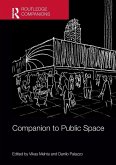"Urban policy innovations designed to confront the many challenges that cities face abound. In most cases, there is little evidence that a given intervention has achieved the desired outcome. In Changing Places, MacDonald, Branas and Stokes argue that there is a widespread disconnect between those who implement place-based changes-such as planners and building or land developers-and the community of scientists who are now starting to rigorously evaluate these changes. They emphasize that planners and developers need to recognize the value of scientific testing and that scientists need to embrace the indispensable and action-oriented work of planners and land developers. Though there have been other calls for place-based research, the authors focus specifically on structural interventions that are scalable and sustainable. They draw on research from multiple fields-city planning, criminology, economics, epidemiology, public health, and more-to demonstrate that well-designed changes to place can significantly improve the health and safety of large groups of people. The manuscript covers a broad range of interventions, including those focused on building and housing, land and open space, transportation and street environments, and entertainment and recreation centers. The book ends with a discussion of unintended consequences and suggestions for future research"--
Hinweis: Dieser Artikel kann nur an eine deutsche Lieferadresse ausgeliefert werden.
Hinweis: Dieser Artikel kann nur an eine deutsche Lieferadresse ausgeliefert werden.








